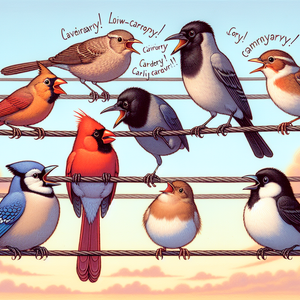The Art of Soundtracking Your Life

Creating playlists is a deeply personal and often therapeutic endeavor. Many individuals view this process as a means to articulate feelings and memories that might otherwise remain unexpressed. For instance, Sarah, a 28-year-old marketing executive, finds solace in curating playlists that reflect her emotional state. She states, “When I’m feeling overwhelmed, I create a playlist that mirrors my mood. It helps me process what I’m going through, and sometimes it even lifts my spirits.” Psychological research supports this, indicating that music can serve as a powerful tool for emotional regulation. Dr. Emily Carter, a music psychologist, explains, “People often use music as a tool for self-soothing or motivation. The right song can boost dopamine levels, enhancing mood and productivity.” This suggests that our playlists are not merely collections of songs but curated experiences that reflect our mental states and aspirations.
Soundtracks for Different Life Moments
Different life moments call for specific types of music, illustrating how soundtracks can enhance our experiences. For example, road trips often evoke the excitement of singing along to favorite tracks while cruising down the highway. A study from the University of California found that upbeat music can significantly improve the driving experience, making it more enjoyable and even safer. Road trip playlists typically feature high-energy songs that evoke feelings of freedom and adventure. Conversely, workout playlists emphasize rhythm and tempo, with fast-paced music shown to enhance athletic performance by boosting endurance and motivation. John, a fitness enthusiast, shares, “I have a specific playlist for my workouts; it keeps me pushing through those last few reps. The right beat makes all the difference.” This illustrates how soundtracking specific activities can not only enhance enjoyment but also improve performance.
The Emotional Impact of Music
Music’s emotional impact stretches beyond moments of joy or motivation; it also serves as a means of reflection and healing during difficult times. Playlists created in moments of grief can help individuals process their emotions. Michael, a bereavement counselor, recounts, “When my father passed away, I created a playlist of songs that reminded me of him. It helped me remember the good times and allowed me to grieve.” Research indicates that music activates brain regions associated with pleasure and reward, highlighting its profound effect on emotional well-being. Moreover, music’s unique ability to evoke memories often transports us back to significant life events, making the act of soundtracking our lives an intimate experience.
Fresh Perspectives on Soundtracking
As technology continues to advance, so too does the way we curate our soundtracks. Streaming platforms now employ sophisticated algorithms that suggest songs based on our listening habits, providing a more personalized experience. Additionally, social media allows users to share playlists, fostering a community of music lovers who influence each other’s choices. The rise of podcasts and audiobooks has further expanded the concept of soundtracking. Many individuals now create auditory experiences that combine spoken word with music, enriching their daily routines or moments of relaxation. This evolution showcases the adaptability of soundtracking and its ability to encompass a broader range of auditory experiences.
The art of soundtracking our lives is a powerful and profoundly personal journey. As we navigate through various moments—whether they involve joy, sorrow, motivation, or relaxation—our curated playlists serve not only as reflections of our musical tastes but also as extensions of our identities. Insights from music enthusiasts and psychologists reveal that the impact of music on our daily experiences is significant, influencing our emotions and enhancing our lives. Whether it’s a road trip, a workout, or a moment of reflection, the right soundtrack can transform the ordinary into the extraordinary, reaffirming that music is indeed the universal language of the human experience. Embracing the art of soundtracking allows us to navigate our lives with intention and creativity, ensuring that our personal narratives are rich with the melodies that resonate with us.
Music Curator
Spotify, Apple Music, Pandora
Responsibilities
Develop and maintain playlists for various platforms and audiences, ensuring they align with current trends and listener preferences.
Collaborate with artists and labels to feature new music, enhancing the diversity of curated content.
Analyze listener data and feedback to refine playlist selections and improve overall engagement.
Required Skills
Strong knowledge of music across genres and eras, with a keen ear for emerging trends.
Proficient in data analysis tools to interpret listener metrics.
Excellent communication skills for collaboration with industry professionals.
Music Therapist
Hospitals, rehabilitation centers, schools
Responsibilities
Design and implement therapeutic interventions using music to address emotional, cognitive, and social needs of clients.
Conduct assessments to determine clients’ musical preferences and therapeutic goals.
Facilitate group and individual sessions to promote healing and personal expression through music.
Required Skills
Master’s degree in Music Therapy or equivalent, with certification from a recognized body (e.g., AMTA).
Strong interpersonal skills to build rapport with clients and understand their needs.
Knowledge of psychological principles related to music and emotional well-being.
Audio Content Producer
NPR, BBC, independent media companies
Responsibilities
Create, edit, and produce audio content, including music podcasts, soundscapes, and audio documentaries.
Collaborate with voice talent, musicians, and sound engineers to ensure high-quality production.
Manage project timelines and budgets, ensuring timely delivery of content.
Required Skills
Proficiency in audio editing software (e.g., Pro Tools, Adobe Audition).
Strong storytelling abilities, with a focus on engaging audio narratives.
Familiarity with sound design principles and audio mixing techniques.
Playlists and Music Marketing Specialist
Record labels, music marketing agencies, independent artists
Responsibilities
Develop marketing strategies to promote new music releases through tailored playlists and social media campaigns.
Build relationships with influencers and music bloggers to enhance visibility for artists.
Monitor and report on the performance of marketing initiatives, adjusting strategies based on data insights.
Required Skills
Experience in digital marketing, particularly in the music industry.
Strong analytical skills to assess campaign effectiveness.
Excellent networking abilities to cultivate industry relationships.
Sound Designer
Film studios, video game companies, advertising agencies
Responsibilities
Create original soundscapes and audio effects for films, games, and other media.
Collaborate with directors and producers to conceptualize the auditory elements of a project.
Utilize sound editing software to manipulate audio recordings and enhance storytelling.
Required Skills
Proficient in sound design software (e.g., Logic Pro, Ableton Live).
Knowledge of audio recording techniques and equipment.
Strong creative vision and attention to detail in producing immersive sound experiences.


